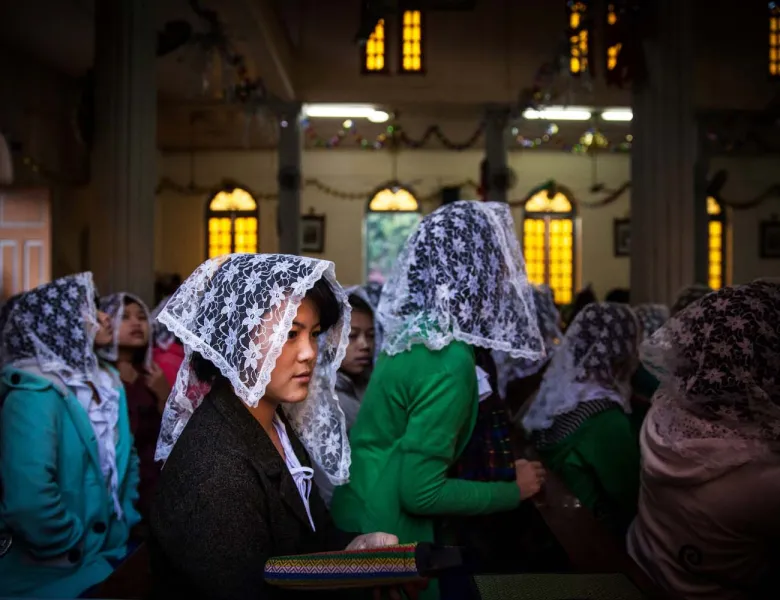Simon Brann Thorpe - Toy Soldiers
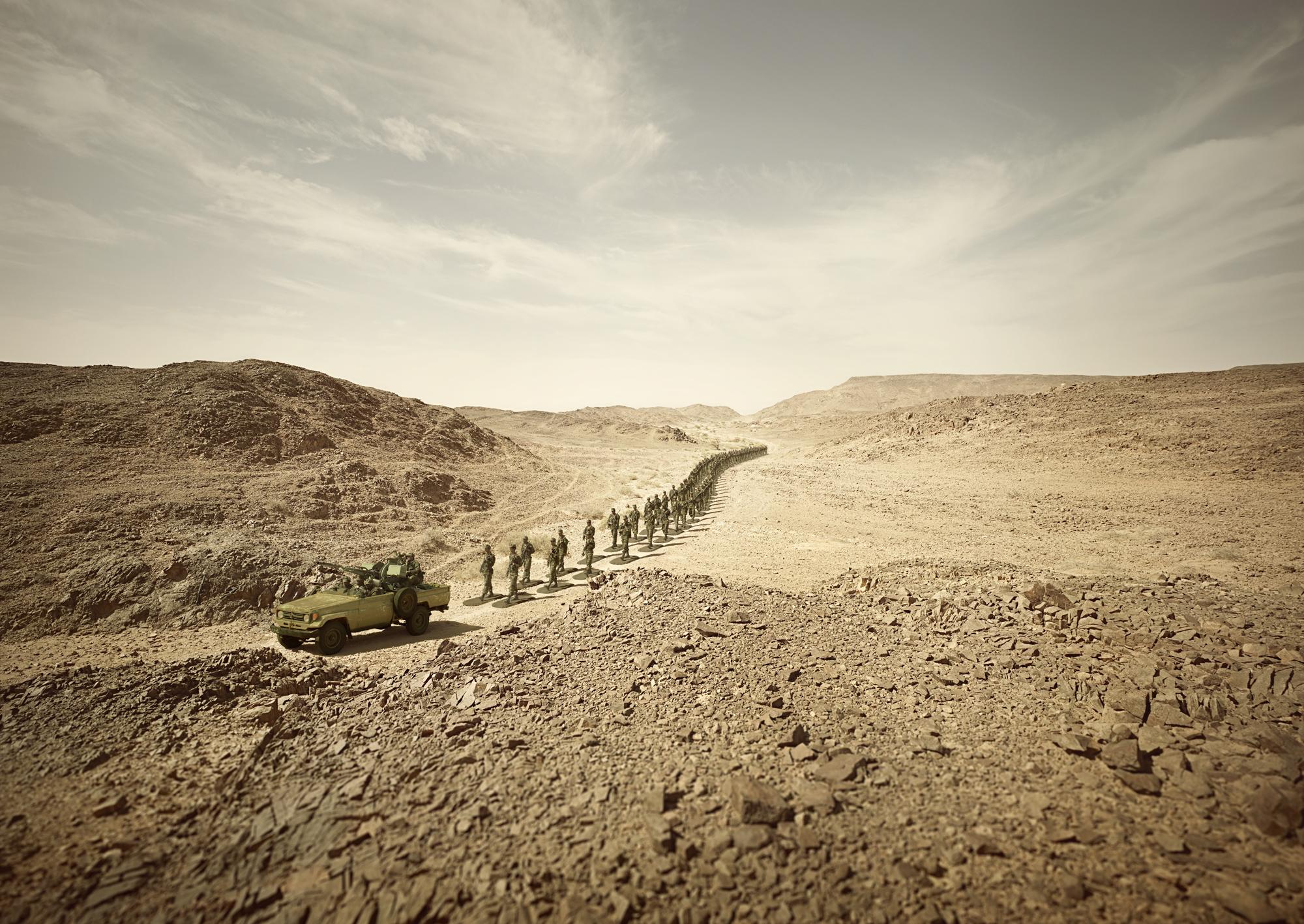
Simon Brann Thorpe (b. 1970) is a photographer from England. Known for his cinematic landscapes and environmental portraiture, including his series 'Toy Soldiers', a contemporary and compelling Alegory of war, which was shortlisted in the Professional Conceptual category of the 2016 Sony World Photography Awards.
After graduating from Alberta College of Art, Calgary, Canada in 1996 with a BA in photography, Thorpe returned to his native England. Producing bodies of work including 'Men of Mississippi' (2000), 'Landmine Victims' (2004), 'Immaculate Consumption' (2007) and 'Toy Soldiers' (2010-12). His early work explored the interplay between issues of identity and landscape, more recently his practice has grown towards groundbreaking conceptual narrative documents on issues of identity, memory, conflict and trauma through film and photography.
Enter the 2017 Sony World Photography Awardsd for free today.
Hi Simon. Tell us more about your shortlisted series ‘Toy Soldiers’
'Toy Soldiers' is a multi facetted allegory of modern warfare, it's narrative investigates the impact and psychological consequences of the invisibility and the de-humanising effects of war. It explores the paradigm of post colonial conflict and through our cultural notions of freedom, nationhood and entertainment, 'Toy Soldiers' attempts to create a dialogue via the viewing of modern conflict as war games seen through the conflict in Western Sahara, know as "Africa’s last colony".
The act of posing real soldiers as toy soldiers draws on a reality re-constructed and plays on the notions of powerlessness and invisibility not just of the soldier within the machine of war but also the individual as a refugee (all the soldiers are refugees in the struggle for self determination in Western Sahara).
At its heart 'Toy Soldiers' is an allegory of war via a unique collaboration between an artist and a military commander. 'Toy Soldiers', a story of war, is shot entirely on location in the hauntingly isolated and beautiful territory known as 'Liberated Western Sahara' in the disputed territory and ongoing conflict in Western Sahara. Through this little known conflict 'Toy Soldiers' explores multiple complex aspects of our cultures relationship to the glorification of war, ubiquitous consumption of images of War and the relationship between the increasingly indistinguishable nature of real images of conflict and their fantasy portrayal as entertainment.
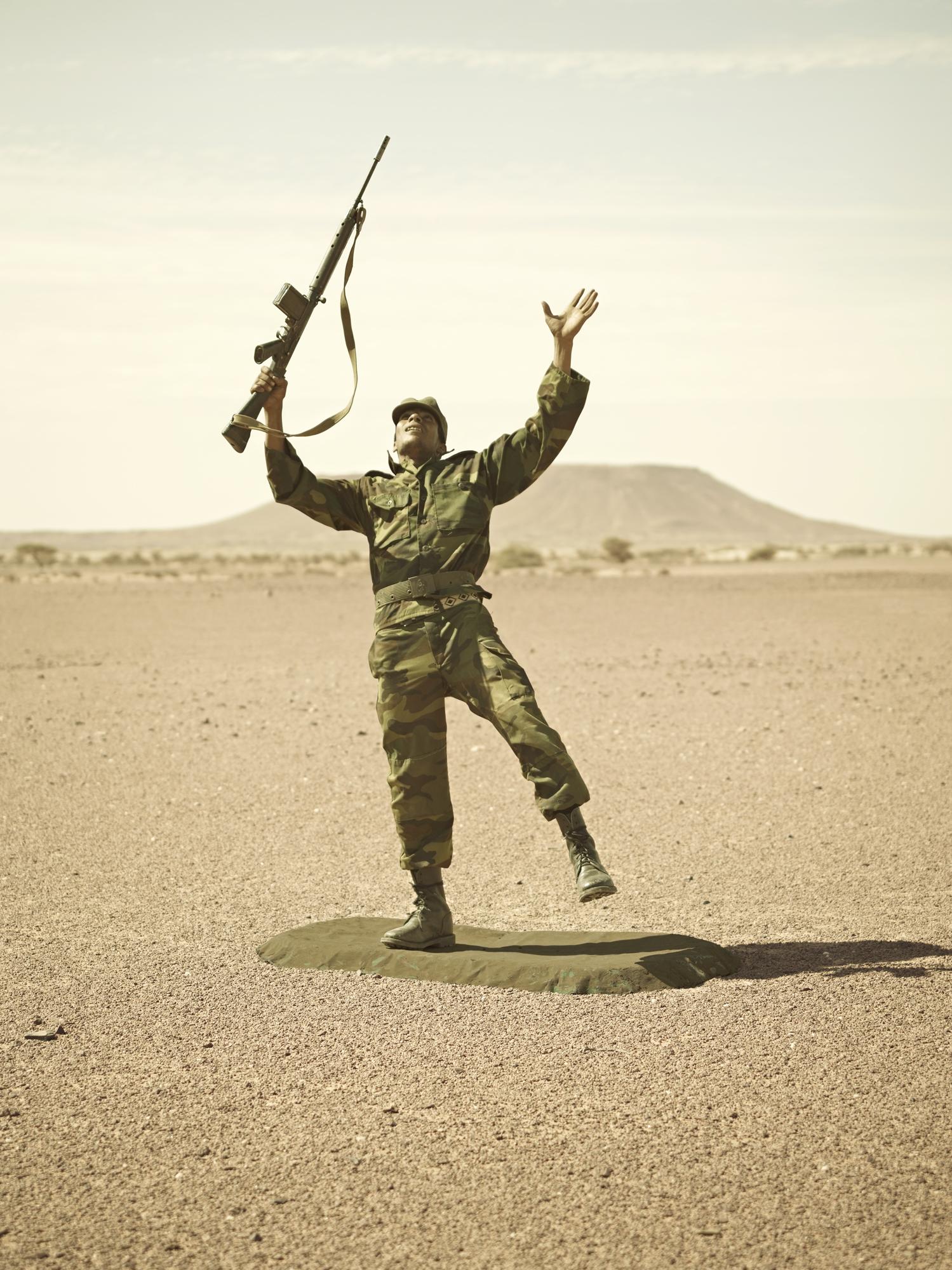
The series has attracted a lot of attention. What do you think it is about the images that resonate with viewers?
I think the resonance is two fold, firstly there is a romance to memory almost all western adults will hold, that of a childhood enactment of, or playing at war games with or without actual plastic toy soldiers. Then secondly there is the more subconscious fallout from this memory once there is realisation of seeing that what is being depicted in this project are not toys but real soldiers posed as toy soldiers. There are ramifications of this that impact on our personal childhood memories of innocent play, when coupled with the truth of war and our cultures modern desensitisation to graphic violence through it's relentless streaming and depiction as entertainment.
Why photography?
Photography is the medium through which I have always worked and there is something still to be said for the resonance of a still image as apposed to a moving one in this day and age, however having said that had there been enough budget I would most definitely have included an element of moving image and sound. The next couple of projects will potentially include narrative based film.
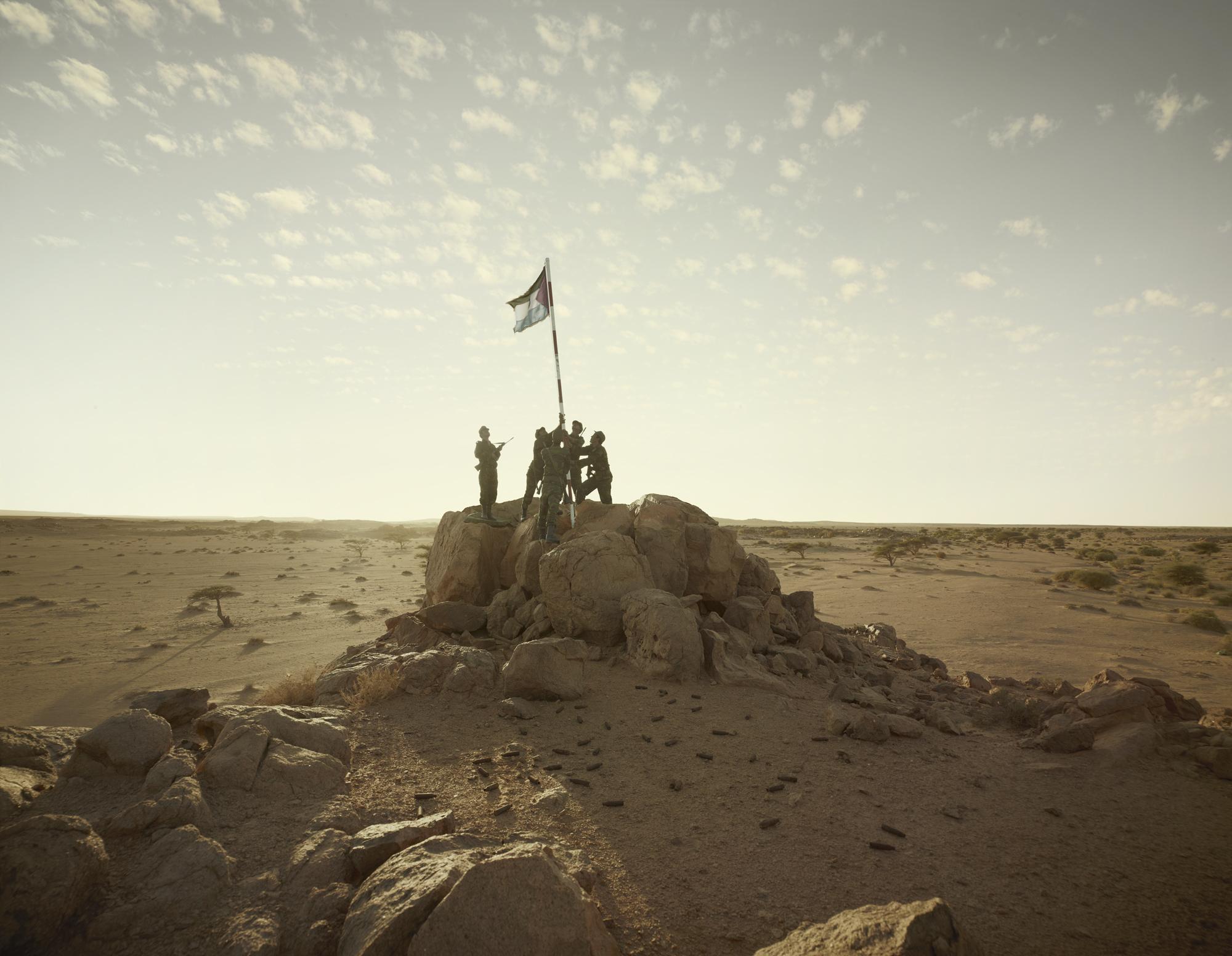
You’ve been exhibited across Europe and have won many awards. Tell us why entering competitions is a part of your plan as a photographer
Competitions and awards are an important part of an artists dialogue with global followers of the mediums of Art, film and photography. Competitions have always been a great way to showcase the best these expressive mediums have to offer and the Sony World Photography Awards and it’s philosophy of not-for-profit is one of the best.
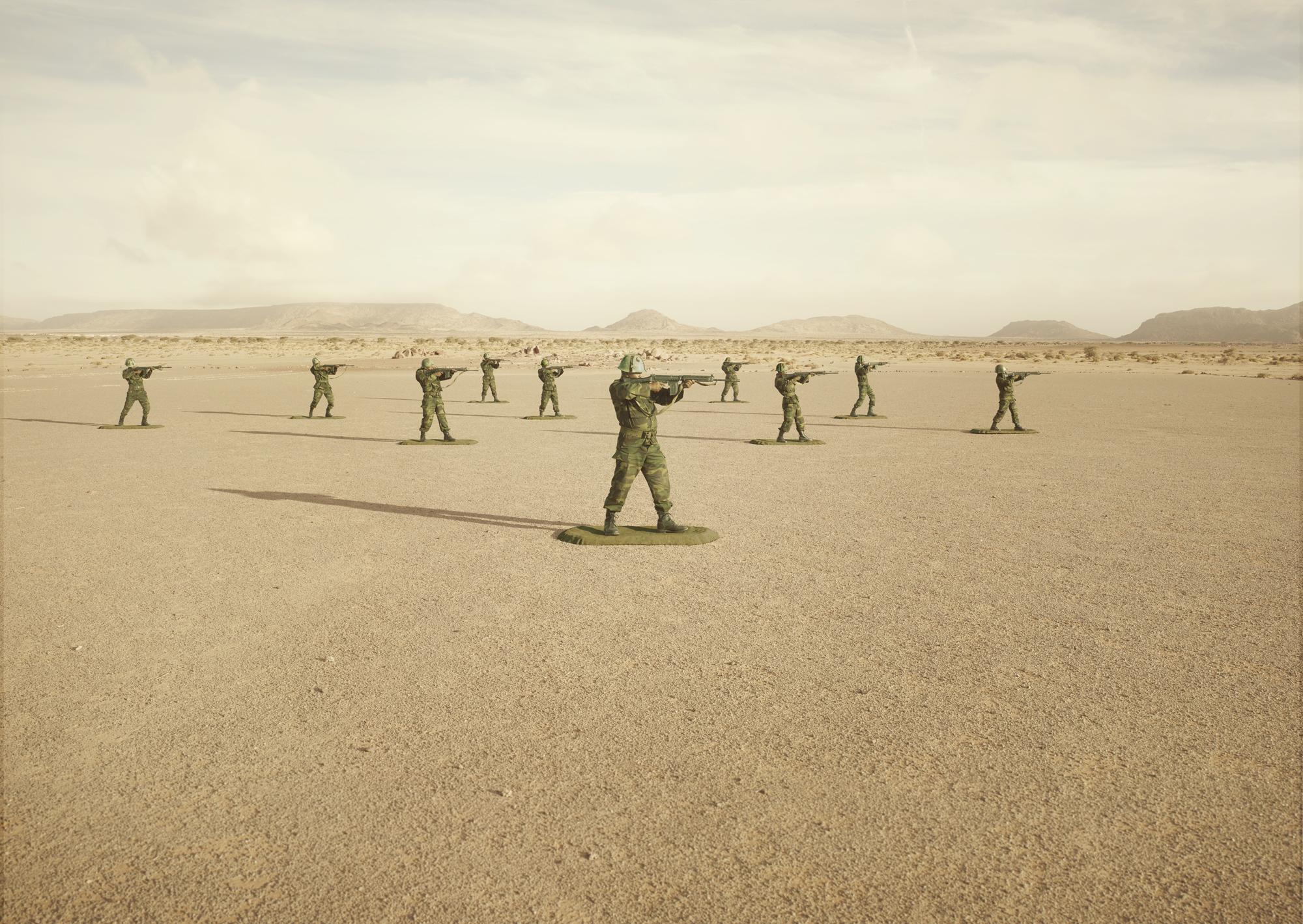
Do you have a photographic philosophy?
I suppose so, I tend to take far less pictures these days, my personal projects are long winded and complex to produce and in the public realm they compete with millions of images for an audiences attention, so before I produce an image or more likely a body of work it has to answer the questions: why am I taking these pictures? Is it credible? And does it have something to say?
What’s next for you?
There are a couple of projects in pre-production so all I can say at the moment is watch this space!






